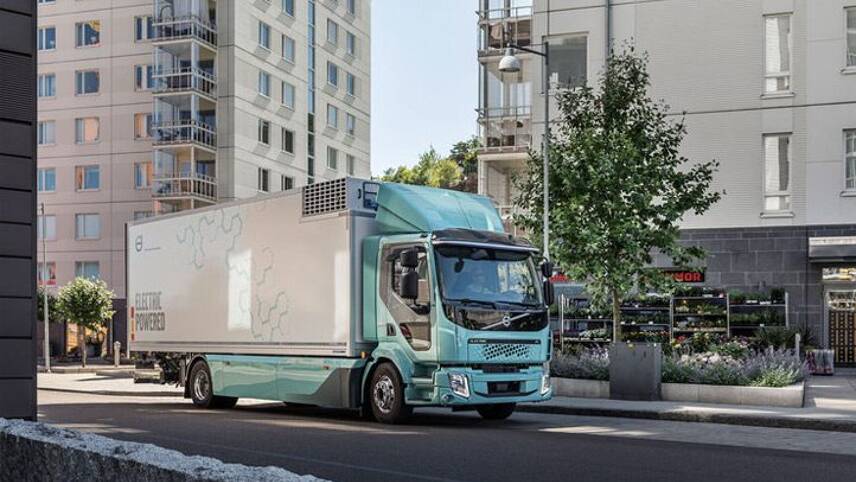Register for free and continue reading
Join our growing army of changemakers and get unlimited access to our premium content

The trucks offer a driving range of up to 300km (186 miles)
A pre-series of Volvo FL Electric trucks have been developed and offered to selected collaborative partners. A refuse truck has been provided to recycling firm Renova and a distribution truck to logistics firm DB Schenker and partner haulier TGM. Both firms operate in Sweden.
Volvo Trucks’ models have a gross vehicle weight (GVW) capacity ranging between 16 to 27 tonnes. The first two models to enter the European market have a GVW of 16 tonnes.
According to Volvo Trucks, the vehicles can be fitted with different battery packs, utilising between two to six lithium-ion batteries, that offer a capacity of up to 300kWh.
The trucks offer a driving range of up to 300km (186 miles) and can be fully charged in two hours via fast CD charging or 10 hours through overnight AC charging.
“Our close collaboration with drivers and customers has enabled us to develop, in a short space of time, electrified transport solutions that meet high requirements in terms of performance, driving distances, cargo handling and vehicle use,” Volvo Trucks’ president Roger Alm said.
“We will continue to develop our electrified offering. At the same time, we are steadily reducing the environmental and climate impact of our diesel- and gas-powered trucks, primarily through energy-efficient drivelines.”
Drivers from Renova and DB Schenker were provided with the opportunity to test-drive the vehicles prior to delivery and part of ongoing operator training.
Volvo Trucks claims that a limited number of vehicles will be rolled out onto the European market during the second half of 2019.
Keep on truckin’
The Volvo Trucks delivery commenced just days before the world’s largest brewer Anheuser-Busch InBev (AB InBev), launched its first fully electric truck for beer deliveries in Colombia.
AB InBev has ordered 800 zero-emission, hydrogen-electric semi-trucks as part of its bid to run its entire fleet of long-haul trucks on clean energy by 2025.
In the UK, Hovis introduced its first all-electric vehicles into its delivery fleet in a bid to reduce air pollution in urban areas in October 2018. Last year also saw UPS announce trials of a pilot fleet of 35 fully electric delivery vehicles (EVs) in the English and French capitals, with a view to a wider rollout.
Matt Mace


Anybody know what the payload is on this vehicle compared to a standard trucks 10.5 tonnes? 300kWh of batteries will weigh some 3 tonnes alone. Are they LiFePO4? Air cooled or liquid cooled?
It may be noted that with respect to hydrogen, this gas does not, (as does methane), occur naturally. Every molecule must be manufactured, and when it is burned, less energy than that required for its production, is liberated.
Litre for litre, it produces only one third as much energy as methane.
Difficult to handle.
But don’t tell the politicians, they might query why the business element is so keen. The answer could possibly be in all the subsidies to be garnered from the public purse. This latter, for these purposes, seems to have no bottom!!!
Richard Phillips